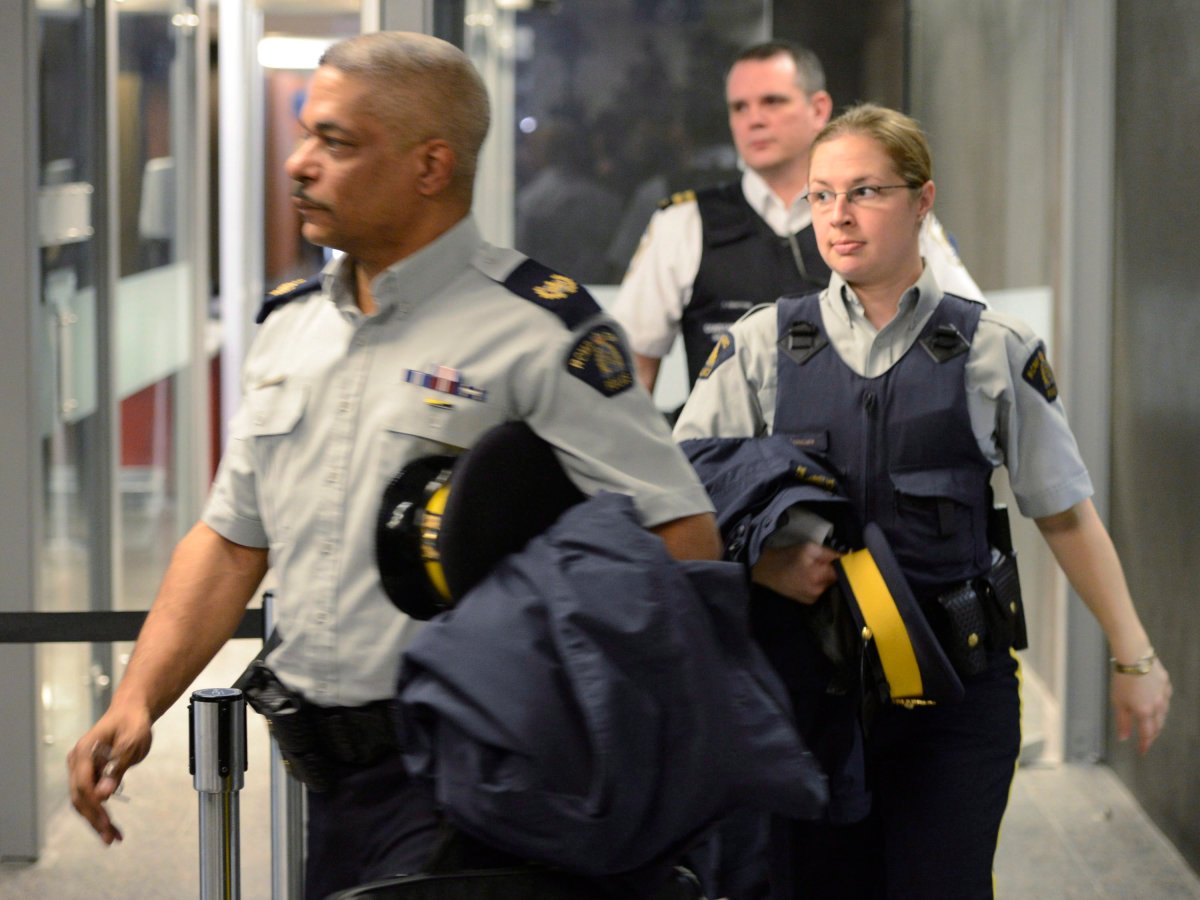Twice in the past few weeks, families have approached Hussein Hamdani with a dilemma. They’re worried their children want to go fight in Syria, and they don’t know what to do: Leery of law enforcement on the one hand, they also don’t want their kids to die among extremists in a foreign country.

The Hamilton lawyer is used to this: He and counterparts across Canada have become de facto human bridges between community members concerned about troubled youth and police on alert for so-called “homegrown” terror suspects.
It’s a fraught relationship, at best: Who’s to say when teenaged rebellion or a twentysomething’s disaffection begins to pose a genuine threat to public safety?
In these most recent cases families contacted Hamdani, who also volunteers with North American Spiritual Revival, because they trust him as a source of information. He set up meetings with his law enforcement contacts to get the process going faster than the families would have be able to do on their own.
People need someone they feel comfortable reaching out to if they have concerns, he says – be it a community organization, imam or lawyer.
That relationship between communities and counter-terror officers was highlighted last month when police announced charges against Hasib Yusufzai. The 25-year-old is the first person charged under new legislation making it a crime to leave or try to leave the country to help a terrorist organization.
But the Canadian Security Intelligence Service (CSIS) contacted the BC Muslim Association two years before charges were laid, recalls association spokesperson Aasim Rashid, making inquirites about Yusufzai: Who knew him? What was he up to, what kind of activities was he involved in?
- Canadian man dies during Texas Ironman event. His widow wants answers as to why
- On the ‘frontline’: Toronto-area residents hiring security firms to fight auto theft
- Honda’s $15B Ontario EV plant marks ‘historic day,’ Trudeau says
- Canadians more likely to eat food past best-before date. What are the risks?
Those inquiries were done in the background, Rashid says: His organization was told to keep an eye on Yusufzai (a task made difficult because he wasn’t an association member).
And it was tips from the Muslim community that helped the RCMP investigation into two terror suspects accused of plotting an attack against a Via Rail passenger train in 2013.
Toronto lawyer Naseer Syed has said his firm has become an unofficial liaison between Muslim communities and the RCMP or CSIS.
And the National Council of Canadian Muslims has members in cities across the country acting as a resource for people contacted by the authorities. The council ensures people know their rights and encourages them not to answer questions without a lawyer present.
Most of the lawyers that do this work for free, says council executive director Ihsaan Gardee.
Imams or other leaders are often the liaisons between the authorities and their community, contacting designated police outreach officers when there’s a concern.
‘Authorities didn’t want a middleman if it wasn’t needed’
After 9/11 the RCMP and CSIS had comprehensive outreach programs to reach Muslim communities, Syed said. But he’s seen that change.
CSIS has fewer public events and formal meetings with communities than before, he said. The RCMP has a dedicated liaison officer but there hasn’t been a strong presence lately.
The change could be due to changes in management or methods, Syed said.
But authorities still grapple with how to get past institutions and to the community itself: They would rather go directly to the source – parents or family members, for example, he said.
“How do you reach the broader community? How do you reach the parents? That’s really the current question. I think that’s the current challenge,” Syed said.
“The authorities didn’t want a middleman if it wasn’t needed … we only found ourselves in that position because people were afraid of dealing with the authorities.”
The RCMP didn’t respond to repeated questions about reductions in its outreach activities. (see note following RCMP response below)
The RCMP’s goal is to engage all of Canada’s ethnic, cultural and religious communities, RCMP spokesperson David Falls said in an via email.
“This is accomplished in part by increasing the understanding of mutual goals and concerns, as well as ensuring appropriate and informed communications should a crisis arise,” he said. That includes communication between law enforcement, NGOs, families and community groups.
But the line between troubled kid and terror threat can blur.
Syed cites the parents of Ali Shahi, the 25-year-old charged with making threats aboard a Sunwing flight: After Shahi’s arrest, his father told Global News they had been trying for years to get him help because he was having mental health issues. That’s a struggle for countless parents of myriad backgrounds. And in the Shahis’ case, Syed said, they don’t want to see their child arrested- they just want him to get help.
It’s a tough to decision to turn a child in to authorities no matter what, Syed said, especially when it’s unclear whether he or she has a mental or emotional illness or truly nefarious intentions.
And the new legislation under which Yusufzai’s been charged may make things even more complicated: As more people are charged with leaving or trying to leave Canada to help terror groups, worried families and friends may be less likely to contact authorities with their concerns.
‘A lot more work can be done’
Law enforcement and community leaders have established lines of contact when a concern comes up, Rashid said. But officers’ appearance of objectivity is key: If people feel law enforcement is “painting everyone with the same brush” then they’re less likely to cooperate, he said.
Rashid believes that it is up to communities not to let new legislation or the latset charges to affect their judgment when it comes to reporting issues to law enforcement.
Gardee’s convinced partnerships between authorities and Muslim communities are the most effective way to combat extremist violence – and there’s room for improvement there, he said.
“I think a lot more work can be done in terms of improving relationships, improving communications.”
Note 12:35 p.m. ET Aug. 6: We received an email response from the RCMP regarding reductions in outreach activities approximately 20 minutes after initial publication:
“The RCMP continues to be involved in national security community outreach. However, it is now mobilizing resources in the pre-criminal space to prevent individuals from being radicalized to violence, and to educate partners about resources available to assist these individuals that are at risk.”
When Global News asked what “mobilizing resources in the pre-criminal space” means, we received the following response:
“By mobilizing resources, the RCMP means providing training to Canadian law enforcement to raise awareness of radicalization to violence indicators among front line police officers, providing training and tools to key partners, mobilize community resources, and developing tactical intervention options which can be adapted on a case-by-case basis for local law enforcement and their partners.”



Comments